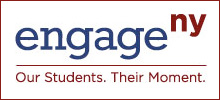8.9 - Domestic Politics and Reform
From EngageNY
The civil rights movement and the Great Society were attempts by people and the government to address major social, legal, economic, and environmental problems. Subsequent economic recession called for a new economic program.8.9a The civil rights movement began in the postwar era in response to long-standing inequalities in American society, and eventually brought about equality under the law, but slower progress on economic improvements.
- Students will compare and contrast the strategies used by civil rights activists, such as Thurgood Marshall, Rosa Parks, Martin Luther King, Jr., and Malcolm X.
- Students will explain the significance of key civil rights victories, including President Truman’s desegregation of the military, Brown v. Board of Education of Topeka (1954), the Civil Rights Act of 1964, and the Voting Rights Act of 1965.
- Students will examine the extent to which the economic situation of African Americans improved as a result of the civil rights movement.
- Students will examine struggles for equality and factors that enabled or limited success on behalf of women, farm workers, Native Americans, the disabled, and the LGBT community.
- Students will examine judicial actions taken to protect individual rights, such as Miranda v. Arizona (1966) and Tinker v. Des Moines School District (1969).
- Students will explain the difference between Medicare and Medicaid.
- Students will examine the connection between the Vietnam War, especially the draft, and the growth of a counterculture and peace movement.
- Students will examine President Ronald Reagan’s and President George H. W. Bush’s cuts to social programs and taxes in an attempt to stimulate the economy.
- Students will examine state and federal responses to gun violence, cyber-bullying, and electronic surveillance.
Learn more on Engage NY
EngageNY.org is developed and maintained by the New York State Education Department (NYSED) to support the implementation of key aspects of the New York State Board of Regents Reform Agenda.
This is the official web site for current materials and resources related to the Regents Reform Agenda. The agenda includes the implementation of the New York State P-12 Common Core Learning Standards (CCLS), Teacher and Leader Effectiveness (TLE), and Data-Driven Instruction (DDI). EngageNY.org is dedicated to providing educators across New York State with real-time, professional learning tools and resources to support educators in reaching the State’s vision for a college and career ready education for all students.














